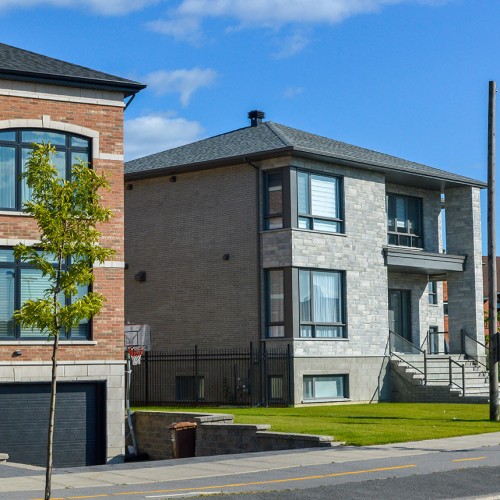Purchasing a plex : where to start
The purchase of your first plex or rental property represents much more than just a simple investment. It’s starting your own business, and like any other business, it involves clients, generating revenue, incurring expenses—both in time and money—and being subjected to the whims of the market. It’s also a good way to diversify your revenue streams, protect against inflation, save money, and take advantage of tax incentives.
So there are numerous advantages, but it’s important to consider all that purchasing a rental property entails, especially if you’re used to a stable income with very little risk.
An income property, a good investment ?
Finding out how much you gain in rent revenue, and ensuring that it measures up to the market average should be your first order of business. This starts by properly examining lease conditions and clauses to avoid any unpleasant surprises.
Even if the seller tells you about the operating expenses (electricity, taxes, maintenance, insurance), take the time to carefully evaluate them yourself, or get help from a specialist.
Return on investment is calculated by comparing the difference between money coming in (rent) and money going out (including mortgage interests) along with the down payment. Assuming your property’s value increases annually, your return on investment should be comfortably higher than your mortgage rate for it to be a good deal.
Imagine a property with 6 rental units for $500,000, with $60,000 in rent revenue and $35,000 in expenses annually, for a difference of $25,000. You pay $125,000 (25%) as down payment for a 5% mortgage amortized over 25 years. This comes out to approximately $18,000 in revenue for the first year. Let’s assume an annual gain of 1.5% ($7,500) for the property.
This leaves you with $14,500, after subtracting expenses and interests, and adding your gain. Then divide that amount by your down payment ($125,000) to get an annual yield of 11.6%.
Check out our article on tips to save up for a down payment.
Never forget that time is money. This percentage may look good, but is it enough to make up for your time investment? Other factors such as taxes, and the cost of major renovations will also affect profitability. A professional’s advice is invaluable in helping you make your decision.
Beware of sale prices that seem too good to be true. Maybe the property needs major repairs, or collecting rent is a nightmare.
Real estate investment and risk management
From a long-term perspective, real estate is usually a safe investment, but that doesn’t necessarily mean that profits are steady and guaranteed. Before anything else, you must evaluate your tolerance for uncertainty, from both a psychological and financial perspective.
To get a better understanding, consider the following: You own a triplex and occupy the lower lodging. On December 23, your two tenants announce that they have fallen in love with each other and are leaving to travel around the world with no date of return. Are you financially tough enough to get through the month of January without collecting that rent?
Will you be able to sleep soundly and enjoy the holidays knowing that it could take up to 4 months before finding new tenants? If cannot answer these questions in the affirmative, it might be safer to simply put your money into your RRSP, for example.
Know-how
Being a landlord is more than a title; it’s a job that requires a multitude of skills. Having the knowledge and ability to perform maintenance and repairs yourself will obviously have a significant impact on your profits, since hiring professionals can quickly send expenses skyrocketing.
Note that in order to respect the rules of the CCQ, and depending on the nature of the work to be undertaken, the owner could be forced to do business with an RBQ licensee.
One should not overlook the human factor in this equation, especially owner-occupants. Your tenants will expect their apartment to be well maintained, and will not hesitate to contact you, day or night, should a problem arise. You will also need to hone your negotiation skills, whether it’s for a rent increase, enforcing a lease clause, or any other requests that may be submitted.
Ready to get started?
The advisors at Multi-Prêts have helped many buyers get the financing to become homeowners. Fill out ourform to get a quick reply.
Keys takeaways
- Owning a rental property offers many benefits, such as revenue diversification, tax breaks, forced savings and protection against inflation.
- You must quantify and analyze the financial aspects and intangible factors before getting started.

